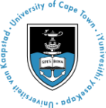UCT mourns death of Neville Alexander
The University of Cape Town is deeply saddened by the death of retired Dr Neville Alexander, acclaimed linguist, academic and anti-apartheid struggle veteran, following a battle with cancer.
"Neville Alexander was an opinion maker all his life," said Gerda Kruger, Executive Director of Communications & Marketing at UCT. "As such he contributed richly not only to dialogues at UCT, but also to South Africa in its formative years as a new democracy. Professor Alexander has a rich and lengthy association with UCT as student, lecturer, professor and friend. The university mourns the loss of this remarkable life, which stands as a role model for all. We extend our sincere condolences to his family."
Professor Alexander, best known for his role in the struggle for a democratic and non-racial South Africa as well as his scholarly achievements, established the Project for the Study of Alternative Education in South Africa (PRAESA) in 1992 at UCT.
He worked as the Western Cape Director of the South African Committee for Higher Education (SACHED) for six years from 1980, which led to the establishment of a leading alternative higher education initiative called Khanya College. He subsequently established the National Language Project (NLP) and then PRAESA. SACHED provided Professor Alexander with the opportunity for exploring the concept of alternative education. (He was a part-time lecturer in Sociology and Educational Method and Adult Education at UCT between 1979 and 1990.)
When the student uprisings were at their height in the 1970s and the 1980s, they turned to initiatives such as SACHED for guidance in developing new approaches to education. Through the NLP and PRAESA, Professor Alexander led the national debate around language policy and planning in South Africa. He came to play a leading role in language policy development with various government departments, including his service as the chair of the new government's Language Plan Task Group. His most recent work focused on the tension between multilingualism and the hegemony of English in the public sphere.
Professor Alexander's intellectual output is marked by a series of influential books and articles. Among the most seminal are One Azania, One Nation,written under the pseudonym No Sizwe, which presents a view of the distribution of power and privilege in terms of class, caste, and colour. Sow the Wind, written in 1986, was influential in the analysis and politics around the uprising in the country. An Ordinary Country, published in 2002, sought to reflect on the politics of South Africa's transition to democracy.
Activism
As a young man Professor Alexander was arrested in July 1963 along with a number of National Liberation Front members and convicted in 1964 of conspiracy to commit sabotage. He was jailed on Robben Island from 1964 to 1974 -- a period that coincided with that of Nelson Mandela, Walter Sisulu and a number of the country's most important political activists. Upon his release he was banned and placed under house arrest in Lotus River, Cape Town, until 1979. He later shared ideas with the leaders of the Black Consciousness Movement, including Steve Biko, and came to play a formative role in the establishment of activist groups in the Western Cape. After the reconciliation talks between the African National Congress and the National Party, Alexander was in the forefront of the establishment of the Workers' Organisation for a Socialist Azania.
Professor Alexander was in Cradock, Eastern Cape, in October 1936 to David James Alexander, a carpenter, and Dimbiti Bisho Alexander, a schoolteacher. His maternal grandmother was one of sixty-four Oromo children who were enslaved in Ethiopia in 1888 and were subsequently brought to Lovedale in the Eastern Cape. His maternal grandfather was a Presbyterian Church pastor.
Professor Alexander excelled as a UCT student in German and History, graduating with a BA in 1955 and a Master of Arts in 1957 (German: Thesis on the Silesia Baroque drama of Andreas Gryphius and Daniel Caspar von Lohenstein). He completed his PhD in 1961 at the University of Tübingen in Germany with a dissertation on style change in the dramatic work of Gerhart Hauptmann. He also completed a BA (Hons) degree in History by correspondence in 1971 during his imprisonment on Robben Island.
Statement issued by UCT Communication and Marketing Department, August 27 2012
Click here to sign up to receive our free daily headline email newsletter

